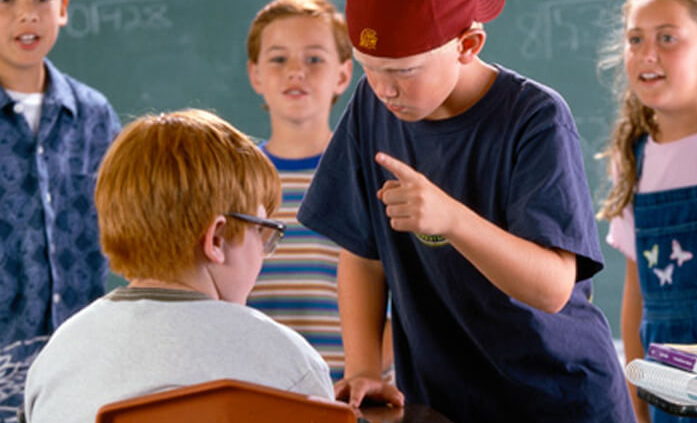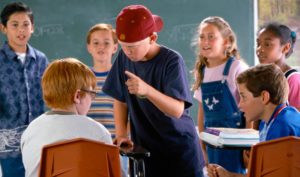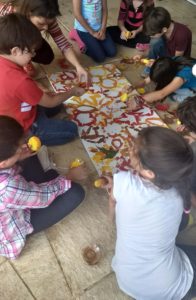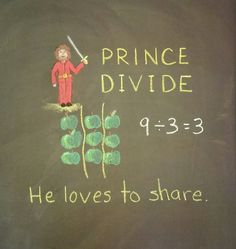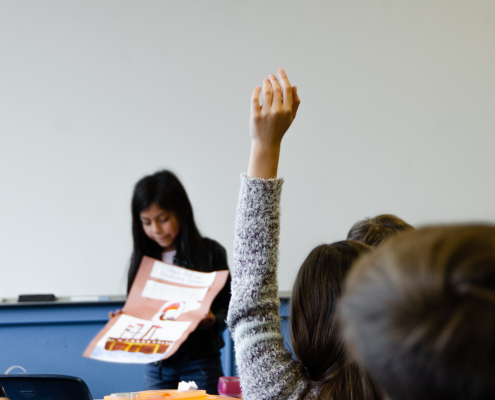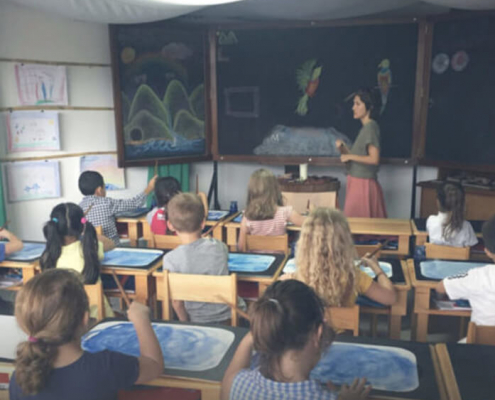About bullying….
According to the Toronto Waldorf School bullying can be described as:
“Not all fighting, aggressiveness, teasing, name calling, etc. is bullying. In fact, much of it is not. Sometimes children are in conflict with each other, sometimes they even fight physically, but it is not bullying. The essential quality of bullying is that there is a power imbalance between the aggressor(s) and the recipient(s) of the aggression.”
Bullying may be defined as the activity of repeated, aggressive behavior intended to hurt another individual, physically, mentally or emotionally.
How can we at TRINUS prevent bullying?
TRINUS sees education as a far greater responsibility than simply teaching reading, writing, and arithmetic. In our school, children are taught the importance of social responsibility, peace, respect, compassion, and courtesy.
At TRINUS children remain with the same teacher all the way through the grades of school until they head to high school. By spending eight years with a single adult mentor, children build long-term relationships and feelings of security. When students or parents have a conflict with the teacher, they are encouraged to work out their differences, building conflict-resolution skills in the process. In addition, the teacher should truly understand how each child learns and can personalize the lessons to specific learning styles.
Our model takes the long-term view that, as with academic learning, healthy social interaction must be self-motivated. Our teachers seek to provide students with important social skills that will enable them to interact compassionately with others, to create a sense of community, and to confront and resolve conflicts within their community. The first and most important goal is to help students learn how to work together as a group and to see their class as a community in which each student plays a vital role.
Students learn to work together by first learning to play together. When conflicts occur among students, on the playground or in the classroom, the teacher acts primarily as a mediator, expressing sympathy for children who are upset, calming the children so that they are able to constructively discuss the conflict, making sure that all of the children involved in the situation are allowed to speak about what happened and how they feel, helping each student to think about what they can do to resolve the conflict, and finally, discussing how a similar conflict might be avoided in the future. Thus, children learn self-control, empathy, responsibility, and conflict resolution. In the early grades, teachers may focus at least as much on developing students’ social skills as on academic instruction, thereby establishing a community of students that is able and eager to work together to learn.
Integrated curriculum across subject areas is characteristic of our education, and this integrative approach is applied not only among academic subjects but also between academic learning and social learning. In the early grades, storytelling is a key for student learning.
First graders learn math by hearing and telling stories about gem-collecting gnomes, but these stories also teach important social skills, such as cooperation. For example, when Matthew Minus loses some of his gems, Patty Plus will happily share hers. Teachers in the early grades also tell “pedagogical” stories that address social conflicts as they arise among students. This allows children to consider the nature of the conflict and how it might be solved without naming names of the actual participants in classroom conflict. This inclusive method helps to maintain the class’s sense of community. In second grade, fables are a main focus of the language arts curriculum, but because these animal stories are also part of the students’ social learning, teachers are careful never to tell children the moral of each fable. Rather, students are encouraged to discuss the fables and form their own judgments and characterizations of the animals based on their behaviors. In this way, young children learn the valuable social skills of interpreting behaviors and responding appropriately.
We at TRINUS understand bullying prevention as a long-term task, beginning in early childhood. Then the class teacher, who stays with the students all through the eight years of grade school creates a strong bond among the students and also between the teacher and the students, and so helping our students developing strong social skills.

